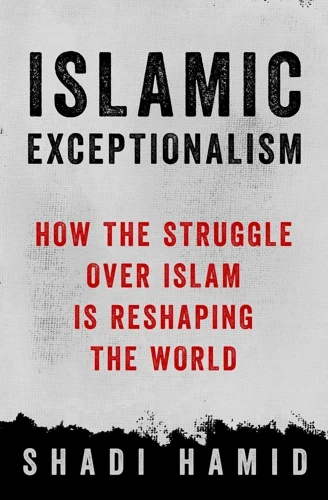The intricacies of dreams have fascinated scholars and analysts for centuries. In the realm of Islamic beliefs, dreams hold great significance and are often seen as messages from a higher power. One particular motif that can be found in these dreams is cannibalism, a practice that involves the consumption of human flesh. While it may seem disturbing and perplexing, the symbolic meaning of cannibalism in Islamic dreams offers a deeper insight into the spiritual and psychological realms of the dreamer. Understanding this symbolism requires a careful examination of the context, cultural beliefs, and the inner desires of the dreamer. By exploring the concept of dreams in Islam, the spiritual interpretations of cannibalism, and common scenarios and meanings, we can gain a better appreciation of the symbolic significance behind these dreams. So, let us embark on a journey to unravel the enigmatic symbolism of cannibalism in Islamic dreams.
The Concept of Dreams in Islam

The concept of dreams holds significant importance in Islam, as they are considered to be a means of communication from Allah to His creations. Dreams are believed to offer insights into the past, present, and future, and provide guidance, warnings, and messages to individuals. Understanding and interpreting dreams, therefore, holds great value in Islamic culture.
1. The Importance of Dream Interpretation in Islam
Dream interpretation is a significant aspect of Islamic culture as it is believed that dreams can hold hidden meanings and symbols that can guide individuals in their waking lives. Muslims consider dreams to be a communication channel between Allah and His believers. The interpretation of dreams is seen as a way to gain insight into the unseen and receive guidance on various aspects of life, such as personal matters, relationships, and future events.
The Prophet Muhammad (peace be upon him) emphasized the importance of dream interpretation and encouraged his followers to seek its understanding. He stated, “The dream of a Muslim is one of the forty-six parts of Prophethood.” This hadith highlights the significance of dreams and their potential to provide divine guidance.
Subscribe and Get a Free Dream Journal from Us
2. Symbolism in Islamic Dreams
Islamic dreams are often believed to contain symbolic meanings rather than literal interpretations. Symbols in dreams are rich with metaphoric significance, and understanding these symbols is crucial in comprehending the underlying messages within the dream. Symbols can vary from person to person but may also have cultural and religious contexts that add further depth to their interpretation.
For example, dreaming about a snake might symbolize temptation or an impending danger. The symbol of a snake has historical and cultural associations with deceit and treachery in many societies, including Islamic culture. The interpretation of a dream involving a snake in an Islamic context might be different from a non-Islamic one.
Islamic dream interpretation draws upon religious texts such as the Quran and Hadith to decipher the symbolism within dreams. Scholars and experts in Islamic dream interpretation use their knowledge of these texts and their understanding of Islamic teachings to provide interpretations that guide individuals in their daily lives.
Understanding the symbolic meaning of cannibalism in Islamic dreams requires a deeper exploration of interpretation methods, historical and cultural context, and spiritual symbolism. By delving into these aspects, a clearer understanding of the significance of cannibalistic dreams in Islam can be gained.
1. The Importance of Dream Interpretation in Islam
In the Islamic faith, dreams hold significant importance and are believed to be a means of communication from Allah or divine entities. Dream interpretation plays a vital role in understanding the messages and symbols conveyed in these dreams, as they can provide guidance, warnings, or insights into one’s spiritual journey.
Dreams are seen as a window into the unseen realms and a way for Allah to communicate with believers. Prophet Muhammad (peace be upon him) emphasized the importance of dream interpretation and encouraged his followers to seek wisdom and guidance through understanding their dreams.
According to Islamic teachings, dreams are seen as a form of prophecy and can provide insights into one’s personal life, relationships, and even the destiny of the entire community. It is believed that dreams can reveal hidden truths and offer guidance in decision-making and personal growth.
Dream interpretation in Islam involves analyzing symbols, themes, and emotions presented in the dream to uncover its deeper meanings. One must consider the context of the dream, personal experiences, and cultural influences to interpret the messages correctly.
Dreams are often believed to have multiple layers of meaning, including both literal and symbolic interpretations. Understanding the symbolic language of dreams is essential in deciphering the messages presented.
Dreams can be filled with complex symbolism, and each symbol carries a unique significance. The interpretation of symbols can vary based on cultural, historical, and individual context. It is important to approach dream interpretation in Islam with sensitivity and an understanding of the broader cultural and religious beliefs.
Dreams are considered a personal and private experience, and it is recommended to consult with knowledgeable and reputable scholars or individuals well-versed in Islamic dream interpretation for accurate guidance.
Dream interpretation, including the understanding of symbolic meanings, carries immense importance in Islam and is seen as a pathway for personal growth, spiritual enlightenment, and guidance from Allah. By delving into the intricate symbolism of dreams, individuals can gain deeper insights into their inner selves, their relationship with Allah, and their journey towards spiritual fulfillment. [Click here to learn more about dream meanings and interpretations](Reaching for the light dream meaning).
2. Symbolism in Islamic Dreams
In Islamic dreams, symbolism plays a significant role in understanding the deeper meanings behind the various images and scenarios that appear. Dreams in Islam are believed to have significant spiritual and psychological implications, and their interpretation can provide valuable insights into an individual’s inner thoughts, emotions, and desires.
1. Literal vs Symbolic Interpretation:
When interpreting dreams, it is important to differentiate between literal and symbolic interpretations. While some dreams may have straightforward literal meanings, others require a more symbolic approach. Symbolism allows the dreamer to tap into the collective unconscious and explore hidden aspects of their psyche.
Symbolism in Islamic dreams often draws from cultural and religious contexts, incorporating elements of mythology, folklore, and scriptures. These symbols help convey profound messages and concepts that may not be easily expressed in a literal form.
2. Historical and Cultural Context:
To understand the symbolism in Islamic dreams, one must also consider the historical and cultural context in which they arise. Different cultures and time periods may attribute various meanings to specific symbols, so it is important to take these factors into account when interpreting dreams.
For example, the symbolism of cannibalism in Islamic dreams can vary depending on cultural beliefs and traditions. In some cultures, cannibalism may represent a metaphorical consumption of knowledge or spiritual growth, while in others, it may signify acts of aggression or dominance.
Understanding the historical and cultural context helps to contextualize the symbolism and allows for a more accurate interpretation of dreams in an Islamic framework.
By taking into consideration the literal versus symbolic interpretation and the historical and cultural context, one can delve deeper into the symbolic meaning of cannibalism within Islamic dreams. This understanding provides an opportunity for self-reflection and insight into one’s emotions, desires, and inner conflicts.
To explore more about the symbolism of different dream elements, visit our article on the meaning of dreams.
Understanding Cannibalism in Dreams
Cannibalism is a recurring and often disturbing symbol that can appear in dreams, including Islamic dreams. Understanding the meaning behind such symbols is crucial for interpreting the messages conveyed by these dreams and their potential impact on the dreamer’s life. When it comes to cannibalism in dreams, it is vital to approach the subject with sensitivity and an open mind, delving into the various possible interpretations that can shed light on its symbolic significance.
One of the first considerations when examining cannibalism in dreams is whether to interpret it literally or symbolically. While dreams occasionally depict literal scenarios, more often than not, they employ symbolism to convey deeper meaning. It is essential to explore the symbolic interpretation of cannibalism rather than taking the dream at face value.
To comprehend the significance of cannibalism in Islamic dreams, it is essential to consider the historical and cultural context in which the religion developed. In ancient times, cannibalism was sometimes practiced in various cultures, particularly during times of scarcity or in ritualistic contexts. It is important, however, not to align Islamic teachings with such practices, as Islam prohibits the consumption of human flesh. Instead, the symbolic interpretations of cannibalism in dreams should be explored within the framework of Islamic beliefs and values.
The spiritual interpretation of cannibalism in Islamic dreams delves into the depths of the dreamer’s subconscious and the underlying emotions, desires, and symbolism at play. By examining these aspects, we can unravel the possible meanings behind cannibalistic imagery in dreams.
One possible interpretation of cannibalism in Islamic dreams is rooted in the exploration of inner desires and forbidden desires. Cannibalism can symbolize a strong craving or longing for something that is forbidden or perceived as morally unacceptable. This could manifest as a desire to possess power over others, control, or even indulging in sinful and destructive behaviors. When cannibalism appears in a dream, it may serve as a warning or an invitation to reflect upon these hidden desires and seek ways to channel them in a healthy and permissible manner.
Another interpretation of cannibalism in Islamic dreams revolves around the concept of metaphorical consumption. This interpretation suggests that cannibalism symbolizes the absorption or assimilation of specific qualities, traits, or experiences from others. It represents the idea of incorporating certain aspects of another person into oneself, such as their knowledge, wisdom, or virtues. This metaphorical consumption can be seen as a positive and transformative act, signifying personal growth and spiritual development.
Dreams involving cannibalism may also point towards transformation and rebirth. The act of consuming human flesh can be seen as a metaphor for shedding old identities, beliefs, or behaviors and embracing a new sense of self. Just as the body fully assimilates and transforms the consumed flesh, the dreamer may be undergoing a profound change or transition in their waking life, allowing them to let go of the past and emerge stronger and more evolved.
Additionally, cannibalism in dreams can be a reflection of power dynamics and control. It may symbolize the dreamer’s feelings of vulnerability or powerlessness in certain aspects of their life. Alternatively, it could indicate a desire for dominance and control over others, potentially suggesting an imbalance in the dreamer’s relationships or interactions. Exploring these power dynamics can provide valuable insights into the dreamer’s waking life and the areas that require attention or resolution.
Understanding these possible interpretations of cannibalism in Islamic dreams can offer a glimpse into the deeper meanings and messages embedded within such dreams. It is crucial to approach dream interpretation with an open mind and consider the personal experiences, emotions, and circumstances of the dreamer to gain a more accurate understanding of the dream’s significance.
Continue reading: Unicorns in Blade Runner: Dream Meaning.
1. Literal vs Symbolic Interpretation
In the realm of dream interpretation, one of the key aspects to consider is the distinction between literal and symbolic interpretations. This differentiation is crucial when trying to understand the symbolic meaning of cannibalism in Islamic dreams, as it allows for a deeper analysis of the underlying messages and implications of such dreams.
Literal Interpretation:
A literal interpretation of cannibalism in dreams would entail understanding the dream as representing a real desire or intention to consume human flesh. However, it is important to recognize that dreams are often symbolic in nature and should not be taken literally. While cannibalism is a grotesque and taboo act in reality, the symbolization of cannibalism in dreams often goes beyond its literal meaning.
Symbolic Interpretation:
When approaching dreams from a symbolic perspective, it is important to acknowledge that elements and actions in dreams often represent something other than their literal form. Cannibalism in Islamic dreams is generally seen as a symbol representing various aspects of the dreamer’s subconscious mind, rather than an actual endorsement or desire to engage in cannibalistic behavior.
By delving into the symbolic interpretation, one can gain a deeper understanding of the underlying messages of the dream. Symbolism in dreams often reflects the dreamer’s emotions, desires, fears, and experiences, operating as a bridge between the conscious and unconscious mind.
The presence of cannibalism in Islamic dreams may symbolize a range of emotions and experiences such as power struggles, transformation, forbidden desires, or inner conflicts. It is essential to consider these symbolic meanings within the context of the dreamer’s personal and cultural background.
For instance, cannibalism may be a representation of power and control, indicating the dreamer’s desire for dominance or a reflection of their experiences with individuals who exhibit such characteristics. Alternatively, it could serve as a metaphor for the consumption or assimilation of different aspects of the dreamer’s personality or identity.
It is important to note that the interpretation of cannibalism in dreams can be highly subjective and dependent on the dreamer’s specific circumstances and experiences. A comprehensive understanding of the individual’s personal journey and symbolic landscape is crucial in discerning the true meaning behind the dream.
When analyzing the symbolic meaning of cannibalism in Islamic dreams, it is essential to move beyond the literal interpretation and delve into the intricacies of symbolism, cultural context, and the dreamer’s personal experiences. This allows for a deeper understanding of the messages being conveyed and facilitates personal growth and self-awareness.
2. Historical and Cultural Context
In order to fully understand the symbolic meaning of cannibalism in Islamic dreams, it is important to consider the historical and cultural context in which these dreams arise. Dreams, in general, are influenced by the individual’s experiences, beliefs, and cultural upbringing. The symbolism attached to cannibalism in Islamic dreams can vary based on these factors.
Historically, cannibalism has been associated with taboo and forbidden acts in many cultures. In Islamic culture, the consumption of human flesh is strictly prohibited and considered a major sin. It is necessary to recognize that the Islamic faith places great importance on maintaining moral conduct and upholding ethical values.
In the context of dream interpretation, symbols and their meanings are often influenced by cultural and historical factors. The significance of cannibalism in Islamic dreams may differ from its interpretation in other cultural contexts. It is vital to take this into account while analyzing the symbolic meaning of cannibalism in Islamic dreams.
The cultural context also plays a role in shaping the interpretation of cannibalism in dreams. Islamic culture emphasizes the importance of maintaining strong family and societal bonds, respect for others, and behaving in a manner that promotes unity and harmony. Cannibalism, which involves the act of consuming another human being, directly contradicts these fundamental principles. The symbolism of cannibalism in Islamic dreams may be associated with the disruption of societal norms or the breakdown of human relationships.
The historical and cultural background of the individual dreaming of cannibalism can affect the interpretation. For example, if an individual has been exposed to stories or images of cannibalism in their upbringing, it may influence their dreams and their symbolic meanings. Similarly, cultural practices or rituals that involve metaphoric consumption, such as the symbolic consumption of the body and blood of Christ in Christian communion, may also shape the interpretation of cannibalism in Islamic dreams.
Understanding the historical and cultural context is essential in comprehending the symbolic meaning of cannibalism in Islamic dreams. The prohibition of cannibalism in Islam, the emphasis on maintaining moral conduct, the importance of strong societal and family bonds, and the individual’s personal experiences and cultural upbringing all contribute to the potential interpretations of cannibalism in dreams. By considering these factors, dream interpreters can better analyze the symbolic significance of cannibalistic dreams within an Islamic framework.
You can also read more about other dream meanings like “color-red” or “killing-a-mouse” to further understand the symbolic world of dreams.
The Spiritual Interpretation of Cannibalism in Islamic Dreams

Symbolic interpretation is a significant aspect of understanding dreams in Islam. Within this framework, cannibalism in Islamic dreams holds a spiritual meaning that goes beyond its literal interpretation. The spiritual interpretation of cannibalism in Islamic dreams explores the deeper symbolism and hidden messages conveyed by these dreams.
1. Inner Desires and Forbidden Desires:
One possible spiritual interpretation of cannibalism in Islamic dreams is related to inner desires and forbidden desires. In Islamic teachings, cannibalism is considered a grave sin and a forbidden act. Dreaming about cannibalism may indicate repressed or forbidden desires that the dreamer may have. It serves as a subconscious manifestation of their inner desires and urges that they might be struggling to control or suppress.
2. Metaphorical Consumption:
Another spiritual interpretation of cannibalism in Islamic dreams revolves around the concept of metaphorical consumption. In this context, the act of cannibalism symbolizes the consumption of ideas or beliefs. It suggests that the dreamer may be assimilating or adopting certain ideologies, beliefs, or behavior patterns that are considered taboo or unacceptable in their waking life. It signifies a need for the dreamer to be cautious about the ideas they consume and the impact it may have on their spiritual well-being.
3. Transformation and Rebirth:
Cannibalism in Islamic dreams can also symbolize transformation and rebirth. Just as a caterpillar transforms into a butterfly by consuming its own body, cannibalism in dreams may signify a process of personal growth and spiritual transformation. It suggests that the dreamer is undergoing a significant change or transition in their life, where they need to let go of certain aspects of themselves in order to emerge as a stronger and more evolved individual.
4. Reflections on Power and Control:
Additionally, cannibalism in Islamic dreams can reflect themes of power and control. It may be symbolic of a power struggle or a feeling of being consumed by someone or something. The dreamer might be experiencing a situation where they feel overpowered or controlled by others, leading to anxiety or a loss of their own identity. It serves as a reminder for the dreamer to assert their autonomy and establish boundaries in their waking life.
These spiritual interpretations of cannibalism in Islamic dreams highlight the significance of analyzing dreams beyond their literal meaning. Dreams are seen as valuable sources of guidance and messages from the divine in Islam, and understanding their symbolic nature can provide deeper insights into one’s spiritual journey.
1. Inner Desires and Forbidden Desires
In the realm of dream interpretation in Islam, cannibalism can be seen as a symbolic representation of inner desires and forbidden desires. This interpretation delves into the subconscious mind of the dreamer and explores the hidden desires that may be present.
The concept of inner desires refers to the deep-seated cravings and longings that individuals may have but may not express openly in their waking life. These desires can range from longing for material possessions or power to more primal and taboo desires that society deems unacceptable.
Forbidden desires, on the other hand, are those that go against cultural or religious norms. In Islam, there are strict guidelines regarding permissible and impermissible acts. Forbidden desires can encompass a wide range of actions, including those related to sexuality, violence, or unethical behavior.
When cannibalism appears in an Islamic dream, it can serve as a symbolic representation of these hidden desires. The act of consuming human flesh, which is universally seen as repulsive and morally unacceptable, represents a crossing of boundaries and a desire to indulge in forbidden pleasures.
It is important to note that the interpretation of dreams is not a one-size-fits-all approach. Each dreamer’s experience and personal context must be taken into consideration. Dreams may vary greatly based on an individual’s experiences, cultural background, and personal struggles.
To further understand the significance of cannibalism in a dream, it is essential to analyze the specific circumstances and emotions surrounding the dream. Dream symbols are not always straightforward and can have multiple layers of meaning.
For example, if a person dreams of being a cannibal and actively consuming the flesh of another human being, it may suggest a deep-seated desire for control, dominance, or power over others. The act of cannibalism in this context represents a metaphorical consumption of another person’s energy or power for personal gain.
On the other hand, if a person dreams of being eaten by cannibals, it may symbolize feelings of vulnerability, being taken advantage of, or being overwhelmed by external forces. This dream scenario can reflect a fear of losing oneself or being consumed by the negative influences or desires of others.
It is worth noting that dreams rarely present literal scenarios and are often laden with symbolism and metaphorical representations. It is crucial to approach dream interpretation with an open mind and consider the various dimensions and possibilities.
Understanding the symbolic meaning of cannibalism in Islamic dreams requires an exploration of the dreamer’s personal context, emotions, and cultural influences. By delving into the realm of inner desires and forbidden desires, we gain insight into the complexities of the human mind and the unconscious desires that may manifest in our dreams.
2. Metaphorical Consumption
In the context of dream interpretation, metaphorical consumption refers to the symbolic act of consuming or eating another human being in a dream. This metaphorical consumption is not to be taken literally, but rather represents a deeper symbolic meaning within the dreamer’s subconscious.
In Islamic dreams, the act of metaphorical consumption can be seen as a representation of the dreamer assimilating certain qualities or characteristics of the person being consumed. It can also symbolize the dreamer taking in the experiences, emotions, or perspectives of others.
One possible interpretation of metaphorical consumption in Islamic dreams is that it represents the dreamer’s desire to possess certain qualities or attributes that they find admirable in others. For example, if a person dreams of consuming the flesh of a scholar, it may symbolize their thirst for knowledge or their aspiration to become a knowledgeable person themselves. Similarly, consuming the flesh of a righteous person may represent a longing to become more pious and virtuous.
Another interpretation of metaphorical consumption in Islamic dreams is that it signifies the dreamer’s need to integrate certain aspects of their own personality or experiences that they have repressed or denied. This could be seen as a form of self-integration, where the dreamer is reclaiming parts of themselves that they have disowned or hidden away. By consuming the flesh of another person, the dreamer is symbolically incorporating those hidden aspects into their own being.
Metaphorical consumption in dreams can also represent a transformative process or a journey of self-discovery. The act of consuming another human being can be viewed as a metaphorical death and rebirth, where the dreamer is shedding old beliefs, behaviors, or identities and emerging as a new and transformed individual. This interpretation highlights the potential for personal growth and transformation that can arise from embracing and integrating all aspects of oneself.
Additionally, metaphorical consumption in dreams can reflect the dreamer’s psychological or emotional hunger. It may symbolize a desire for control, power, or dominance over others. This interpretation suggests that the dreamer may be struggling with issues of control or feeling a lack of power in their waking life, and the dream is serving as a way for their subconscious to explore and address these underlying feelings or desires.
Metaphorical consumption in Islamic dreams can have multiple symbolic interpretations. It can represent the dreamer’s desire to assimilate qualities they find admirable, the integration of repressed aspects of their own personality, a transformative process, or a reflection on power and control. Understanding the context and personal associations of the dreamer is crucial in interpreting the specific meaning of cannibalism within a dream.
To delve deeper into dream symbolism, you may find it useful to explore other articles such as those on the meaning of colors in dreams (Color red dream meaning) or the significance of certain objects in dreams, like a school bus leaving (School bus leaving dream meaning) or slides (Slides dream meaning). These resources can provide additional insights into the symbolism and meaning behind various dream elements.
3. Transformation and Rebirth
One of the possible interpretations of cannibalism in Islamic dreams is the concept of transformation and rebirth. This symbolic meaning stems from the idea that cannibalism represents a profound change or transition in the dreamer’s life.
In Islamic dream interpretation, cannibalism can be seen as a metaphor for personal growth and transformation. Just as a caterpillar undergoes a dramatic metamorphosis to become a butterfly, the act of consuming human flesh in dreams can signify a similar process of inner change and development.
This interpretation suggests that the dreamer may be experiencing a period of self-discovery and spiritual awakening. It implies that they are undergoing a significant transformation in their beliefs, attitudes, or behaviors.
Cannibalism in dreams can also symbolize the concept of rebirth. It represents the shedding of old ways and embracing a new, more enlightened way of being. This rebirth can manifest as a radical shift in the dreamer’s perspective, a letting go of past traumas, or a newfound sense of purpose and meaning in life.
Additionally, the act of consuming human flesh can be seen as a metaphorical representation of integrating different aspects of oneself. It suggests that the dreamer is incorporating previously repressed or ignored parts of their personality into their conscious self. This integration allows for greater wholeness and authenticity.
The symbolism of transformation and rebirth in cannibalistic dreams is influenced by the cultural and historical context of Islam. The religion places great emphasis on spiritual growth and self-improvement, highlighting the importance of personal transformation.
It is important to note that the interpretation of dreams is subjective and can vary depending on the individual. To gain a deeper understanding of the specific meaning behind cannibalism in an Islamic dream, it is essential to consider the context and details of the dream itself.
To explore the topic further, consider reading about the dream meaning of killing a mouse. This dream represents a small creature that is often associated with fear, vulnerability, and hidden aspects of oneself. Understanding the meaning of killing a mouse in dreams can provide additional insights into the symbolism of transformation and rebirth in cannibalistic dreams. [Find more information about killing a mouse dream meaning here.](Killing a mouse dream meaning)
4. Reflections on Power and Control
In the context of Islamic dreams, the symbolic meaning of cannibalism often reflects on power and control. It is important to note that cannibalism in dreams is not to be taken literally, but rather as a metaphor for certain psychological or emotional states.
One possible interpretation of cannibalism in dreams is the reflection of inner desires and forbidden desires. The act of consuming human flesh represents a consumption of something that is considered taboo or forbidden. This could suggest a hidden desire for power or control over others, which may be repressed or unconscious in waking life. The dream might be calling attention to these suppressed desires, urging the dreamer to examine their own motivations and impulses.
Another interpretation of cannibalism in dreams is the idea of metaphorical consumption. It symbolizes the dreamer’s need to “consume” or take in certain qualities or attributes of another person. This could reflect a desire to possess their strengths, characteristics, or even their power and influence. It may also suggest a need for validation or recognition from others, relating to the dreamer’s sense of self-worth and identity.
Cannibalism in dreams can also represent transformation and rebirth. In many cultures, eating human flesh is associated with the idea of gaining strength or acquiring the qualities of the consumed. In the context of dreams, this can be interpreted as a need for personal growth and self-improvement. The dream might be urging the dreamer to let go of old habits or beliefs in order to transform themselves into a stronger, more empowered individual.
Lastly, cannibalism in dreams can reflect on power dynamics and control. It may symbolize the dreamer’s feelings of being dominated or consumed by others, whether it be in personal relationships or in a broader societal context. This interpretation suggests a need to assert oneself and regain power and control over one’s own life. It can also serve as a reminder to establish healthy boundaries and assert one’s independence.
The symbolic meaning of cannibalism in Islamic dreams reflects on various aspects of power and control. It can highlight inner desires, the metaphorical consumption of qualities or attributes, transformation and rebirth, and reflections on power dynamics. Understanding the deeper meaning of these dreams can provide valuable insights into the dreamer’s subconscious mind and their emotional and psychological state.
Note: To understand more about power and control in dreams, you can also read our article on when you hit an abusive person in dreams.
Common Scenarios and Meanings
In Islamic dreams, the symbolic meaning of cannibalism can vary depending on the specific scenario. While cannibalism is generally seen as a disturbing and taboo act in most cultures, its symbolism in dreams can provide deeper insights into the dreamer’s psyche and spiritual journey. Understanding the common scenarios and meanings associated with cannibalism in Islamic dreams can shed light on the hidden messages and metaphors behind these dreams.
1. Being a Cannibal: If the dream involves the dreamer actively participating in cannibalistic acts, it can indicate inner desires and forbidden desires that need to be explored and addressed. This scenario may suggest that the dreamer is struggling with certain aspects of their personality or repressed emotions that they need to confront.
2. Being Eaten by Cannibals: When the dreamer is being eaten by cannibals, it symbolizes a sense of powerlessness and vulnerability. This scenario may reflect situations in the dreamer’s waking life where they feel overwhelmed, taken advantage of, or consumed by the demands and expectations of others. It can be an indication for the dreamer to assert their boundaries and regain control over their life.
3. Witnessing Cannibalism: If the dreamer is a passive observer witnessing cannibalistic acts, it can represent a deep-seated fear or concern about the destructive behaviors or actions of others. This scenario may signify the dreamer’s need to distance themselves from toxic relationships or negative influences in their waking life.
4. Cooking and Preparing Human Flesh: Dreams involving the cooking and preparation of human flesh can hold symbolic meanings related to transformation and rebirth. This scenario may suggest that the dreamer is undergoing a process of self-reflection and growth, where they are metaphorically “consuming” and integrating aspects of themselves or their experiences to emerge as a new and transformed individual.
It is important to note that these interpretations are not set in stone and may vary based on the individual’s unique circumstances and personal associations with cannibalism. Dreams are highly subjective, and it is crucial to consider the dreamer’s own emotions, experiences, and cultural background when analyzing the symbolic meaning of cannibalism in their dreams.
Understanding the symbolic meanings of cannibalism in Islamic dreams requires a holistic approach that takes into account the dreamer’s personal psyche, the historical and cultural context surrounding dreams, and the metaphoric implications of cannibalistic acts. Each dream is a deeply personal experience that can provide valuable insights and guidance for the dreamer’s spiritual and emotional well-being.
To gain a deeper understanding of dream symbolism in Islam, it is essential to consult a knowledgeable religious authority or a professional dream interpreter who can provide guidance and support in interpreting these complex and enigmatic dreams.
For more information on dream interpretations, you can explore our article on backyard dream meanings.
1. Being a Cannibal
Being a Cannibal in a dream is a complex and intriguing symbol that can carry profound symbolic meaning. Within the context of Islamic dream interpretation, this scenario often represents a deep exploration of inner desires and forbidden urges.
When one dreams of being a cannibal, it does not necessarily mean that the individual has an actual desire to consume human flesh. Rather, this symbol is often understood metaphorically, representing a person’s intense craving for power, control, or domination over others. It is important to note that cannibalism in dreams is not to be taken literally, but rather as a symbolic representation of these underlying emotions.
This dream scenario may arise from repressed desires or cravings that the dreamer may be hesitant to acknowledge in their waking life. It could be indicative of a need for power and dominance, manifesting in various ways such as a desire to control others or a thirst for superiority. It is crucial to assess whether these desires are healthy or if they stem from negative or harmful intentions.
Being a cannibal in a dream could also reflect the dreamer’s struggle with their own inner darkness and primal instincts. It may highlight a fear of succumbing to these base desires or losing control over one’s moral compass. This dream offers an opportunity for self-reflection and examination of the shadow aspects of one’s personality.
In the Islamic context, this dream scenario may serve as a reminder of the importance of self-discipline and proper conduct. It urges the dreamer to recognize and address any inappropriate or harmful desires that may be lurking within their subconscious.
It is essential to consider the specific emotions and details surrounding the dream to gain a more comprehensive understanding of its meaning. This includes analyzing any accompanying feelings of guilt, pleasure, or fear during the dream. Additionally, reflecting on the various elements and individuals involved in the dream may provide further insight into its interpretation.
Dreaming of being a cannibal in an Islamic context serves as a powerful symbol that urges the dreamer to explore their inner desires, confront their shadow self, and strive for self-discipline and moral righteousness. Through dream interpretation and self-reflection, one can begin to understand and address these underlying emotions in order to achieve personal growth and spiritual harmony.
2. Being Eaten by Cannibals
Being eaten by cannibals in a dream is a vivid and unsettling image that can have various symbolic meanings in the context of Islamic dream interpretation. This scenario often represents a sense of vulnerability, powerlessness, and the feeling of being consumed by others or the world around us.
1. Vulnerability and Powerlessness: Being eaten by cannibals can symbolize a deep-rooted fear of being dominated or overpowered by others, whether it be in personal relationships, professional settings, or societal structures. It reflects a sense of powerlessness and the belief that one’s individuality or autonomy is being threatened.
2. Loss of Identity: This dream scenario can also indicate a feeling of losing one’s sense of self or identity. It may represent a fear of being assimilated or becoming indistinguishable from others, losing one’s unique qualities, values, or beliefs in the process.
3. Overwhelming Emotional Experience: Dreaming of being eaten by cannibals can also be a manifestation of overwhelming emotions or situations in waking life. It suggests a sense of being figuratively “devoured” by overwhelming stress, responsibilities, or challenges. This dream may serve as a reminder to address and manage these emotional burdens.
4. Boundary Violation: This dream theme can symbolize a violation of personal boundaries or being taken advantage of by others. It signifies a fear of being exploited, physically, emotionally, or psychologically.
It is important to note that the symbolic interpretation of being eaten by cannibals in dreams can vary depending on the specific emotions, cultural beliefs, and personal experiences of the dreamer. The dreamer should reflect on their own feelings and experiences in order to better understand the intended message of the dream.
In Islamic dream interpretation, it is advised to seek guidance from a knowledgeable and trustworthy individual, such as a religious scholar or dream interpreter, to gain a deeper understanding of the dream’s significance. Additionally, considering the broader context of other elements and symbols within the dream can provide further insight into its interpretation.
3. Witnessing Cannibalism
Witnessing Cannibalism
In dreams, witnessing cannibalism can be a disturbing and unsettling experience. It is important to approach the interpretation of this symbol with an open mind and an understanding of its possible meanings in the context of Islamic symbolism.
1. Shock and Fear:
When a person dreams of witnessing cannibalism, it often evokes feelings of shock, fear, and horror. These emotions reflect the instinctual repulsion and taboo associated with the act of cannibalism in society. In an Islamic dream interpretation, this reaction can be seen as a warning or a reminder to avoid engaging in behavior that goes against religious teachings or moral principles.
2. Symbolic Consumption:
Symbolically, witnessing cannibalism in a dream may represent a sense of being consumed or devoured by negative influences, destructive relationships, or harmful ideologies. It can be interpreted as a reminder to be cautious about the company one keeps and the ideas one internalizes. This dream might urge the dreamer to distance themselves from toxic individuals or situations that can harm one’s spiritual well-being.
3. Morality and Ethics:
Witnessing cannibalism in a dream can also symbolize a moral dilemma or an inner conflict. It may reflect a struggle with making choices or decisions that go against one’s conscience or moral compass. This dream might be prompting the dreamer to evaluate their actions and ensure that they are living in accordance with their values and beliefs.
4. Reflecting on Society:
In a broader societal interpretation, witnessing cannibalism in a dream may highlight underlying societal issues such as greed, manipulation, or exploitation. It may serve as a commentary on the dark aspects of human nature and the potential consequences of unchecked desires. This dream can be seen as an invitation to reflect on one’s own behavior and contributions to society, and to actively work towards creating a more just and compassionate world.
5. Transcending and Growth:
Dreaming of witnessing cannibalism can also be seen as a transformative experience. It may signify the need for the dreamer to let go of old patterns, beliefs, or attachments that no longer serve them. This dream can represent an opportunity for growth, renewal, and spiritual awakening. It may encourage the dreamer to embrace change, shed negativity, and embark on a path of personal development.
It is important to remember that the interpretation of dreams is highly subjective, and the meanings can vary depending on the individual’s personal experiences, beliefs, and cultural background. When trying to understand the symbolic meaning of witnessing cannibalism in an Islamic dream, it is crucial to take into account the specific context of the dream and to consult with a trusted spiritual advisor or scholar for further guidance.
4. Cooking and Preparing Human Flesh
In the realm of dream interpretation, one of the most unsettling and controversial images that may arise is the act of cooking and preparing human flesh. In Islamic dreams, this disturbing imagery holds symbolic meanings that delve deep into the subconscious mind. To fully comprehend the significance of cooking and preparing human flesh in Islamic dreams, it is essential to explore various possible interpretations.
1. Literal vs Symbolic Interpretation:
When analyzing dreams involving cannibalism, it is crucial to differentiate between literal and symbolic interpretations. While literal cannibalism is undoubtedly forbidden in Islam, symbolic interpretation provides a metaphorical lens through which to understand dreams. The act of cooking and preparing human flesh in a dream should not be taken literally but rather as a representation of underlying emotions, desires, or situations.
2. Historical and Cultural Context:
Interpreting cannibalism dreams within the framework of historical and cultural context is another crucial aspect. Cannibalism has been practiced by ancient tribes in history as a means of survival or as ritualistic acts. Consequently, dreams involving cooking and preparing human flesh may draw upon these historical practices, emphasizing the significance of cultural and historical influences on dream symbolism.
The Spiritual Interpretation of Cooking and Preparing Human Flesh:
1. Inner Desires and Forbidden Desires:
Cooking and preparing human flesh in dreams may represent inner desires or forbidden desires suppressed by the dreamer. It could signify a deep yearning for something that the individual perceives as forbidden or taboo. This symbolizes the struggle between adhering to societal norms and the longing for unconventional or unconventional experiences.
2. Metaphorical Consumption:
The act of cooking and preparing human flesh can metaphorically denote the consumption of someone’s qualities or characteristics. It may indicate a desire to “consume” certain traits or attributes possessed by others, perhaps in an attempt to assimilate or adopt those qualities in oneself. This interpretation reflects the individual’s desire for personal growth and development.
3. Transformation and Rebirth:
Cooking and preparing human flesh in dreams can also symbolize transformation and rebirth. In Islamic teachings, consuming human flesh is prohibited, and thus the dream may represent a metaphorical act of purging or shedding negative qualities or aspects of oneself. It may signify the dreamer’s aspiration for personal growth, renewal, and a fresh start.
4. Reflections on Power and Control:
Dreams involving cooking and preparing human flesh may also shed light on power dynamics and control issues. The act could symbolize the dreamer’s desire to exert dominance or control over others. It may reflect a subconscious need to manipulate or have authority over those around them. Exploring these dreams could provide insight into the dreamer’s emotions regarding power and control struggles in their waking life.
Understanding the symbolic meaning of cooking and preparing human flesh in Islamic dreams requires a nuanced interpretation that considers the various layers of significance. By examining the dreamer’s internal desires, cultural influences, and the dream’s metaphorical representations, a deeper understanding of the dream symbolism can be achieved. Additionally, it is important to remember that dreams are highly individualized, and their meanings may vary depending on the unique circumstances and experiences of the dreamer.
Conclusion
In conclusion, the symbolic meaning of cannibalism in Islamic dreams is complex and multifaceted. While dreams are subjective experiences and can vary greatly from person to person, understanding the symbolism behind cannibalism in Islamic dreams can provide valuable insights into one’s subconscious desires, fears, and emotions.
Throughout Islamic traditions, dreams hold significant importance and are often regarded as a means of communication from the Divine. Dream interpretation is considered a valuable tool for understanding oneself and seeking guidance in various aspects of life. It is believed that dreams can reveal hidden messages and convey deeper meanings that are often not apparent in waking life.
Symbolism plays a crucial role in Islamic dream interpretation. Dreams are seen as messages from Allah, and the symbols contained within them are seen as a way in which these messages are conveyed. Symbolism allows for a deeper understanding of the dream’s underlying messages and can provide invaluable insights into one’s spiritual, emotional, and psychological state.
When it comes to understanding cannibalism in Islamic dreams, a distinction must be made between literal and symbolic interpretation. While it is important to consider the literal meaning of the dream, such as potential underlying physiological or psychological issues, it is equally important to explore the symbolic implications of cannibalism.
The symbolic interpretation of cannibalism in Islamic dreams can be traced back to historical and cultural contexts. In some instances, cannibalism may symbolize a person’s inner desires, particularly those that are considered forbidden or taboo. This can include repressed sexual or aggressive urges that may manifest in dreams in the form of cannibalistic imagery.
Furthermore, cannibalism can also be seen as a metaphorical consumption, representing the assimilation or internalization of certain traits, ideas, or experiences. This can signify a deep desire to acquire the qualities or characteristics of another person or to incorporate certain aspects of their lives into one’s own.
Additionally, the symbolism of cannibalism can relate to themes of transformation and rebirth. It may suggest a need for personal growth and spiritual evolution. Just as the act of cannibalism results in the consumption and assimilation of another person, it can also represent the shedding of old habits or beliefs and the emergence of a new self.
Power and control are also significant aspects of the symbolic interpretation of cannibalism in Islamic dreams. Cannibalism can reflect feelings of dominance, both in terms of asserting control over others or being subjugated by someone more powerful. It can also highlight one’s internal struggles for power and control, symbolizing a need to assert oneself or maintain authority in certain situations.
It is important to note that the interpretation of cannibalism in dreams can vary depending on the specific scenarios and details within the dream. Common scenarios such as being a cannibal, being eaten by cannibals, witnessing cannibalism, or cooking and preparing human flesh can each have their own unique meanings and implications.
In conclusion, the symbolic meaning of cannibalism in Islamic dreams goes beyond its literal portrayal. It encompasses various dimensions including inner desires and forbidden desires, metaphorical consumption, transformation and rebirth, as well as reflections on power and control. Understanding these symbolic interpretations can provide valuable insights into one’s subconscious and aid in personal growth and self-discovery.
Frequently Asked Questions
1. How significant are dreams in Islam?
In Islam, dreams are believed to hold important messages and guidance from Allah. They are seen as a means of communication between individuals and the spiritual realm.
2. Why is dream interpretation important in Islam?
Dream interpretation is important in Islam as it helps individuals understand the hidden meanings and messages behind their dreams. It can provide insights into one’s spiritual journey, guidance for decision-making, and warnings about future events.
3. How does symbolism play a role in Islamic dreams?
Symbolism is an integral part of Islamic dreams. Symbols in dreams communicate deeper meanings, often representing metaphors and allegories related to various aspects of the dreamer’s life and spiritual journey.
4. What is the difference between a literal and symbolic interpretation of cannibalism in dreams?
A literal interpretation of cannibalism in dreams would imply the actual act of consuming human flesh. However, a symbolic interpretation suggests that cannibalism in dreams represents metaphorical or symbolic consumption of qualities, characteristics, or aspects of oneself or others.
5. Why is historical and cultural context important in understanding cannibalism in Islamic dreams?
Historical and cultural context helps provide a deeper understanding of the symbolic meaning of cannibalism in Islamic dreams. Cultural beliefs, practices, and historical events can influence the interpretation and significance of cannibalism as a symbol in dreams.
6. How do inner desires and forbidden desires relate to the interpretation of cannibalism in Islamic dreams?
In Islamic dream interpretation, cannibalism can symbolize repressed or forbidden desires that the dreamer may possess. It serves as a reflection of inner conflicts, urges, or temptations that may need to be addressed in waking life.
7. What does metaphorical consumption mean in relation to cannibalism in dreams?
Metaphorical consumption, in the context of cannibalism in dreams, refers to the symbolic assimilation or internalization of certain qualities or attributes represented by the consumed flesh. It suggests a desire to gain strength, power, or knowledge from others or to incorporate their qualities into oneself.
8. How does cannibalism in dreams relate to transformation and rebirth?
In Islamic dreams, cannibalism can symbolize transformation and rebirth. It signifies the letting go of old habits, beliefs, or negative aspects of oneself and the emergence of a new, improved version. It represents a spiritual journey of growth and self-transformation.
9. What reflections on power and control can cannibalism in dreams offer?
Symbolically, cannibalism in dreams can reflect power struggles, control issues, or feelings of dominance and submission in the dreamer’s waking life. It may indicate a need to assert or gain control over certain situations or relationships.
10. What are some common scenarios and meanings associated with cannibalism in dreams?
Common scenarios and meanings of cannibalism in dreams include being a cannibal (symbolizing dominance or aggression), being eaten by cannibals (representing feelings of vulnerability or being taken advantage of), witnessing cannibalism (reflecting a sense of shock or powerlessness), and cooking and preparing human flesh (symbolizing the need for transformation or change).










